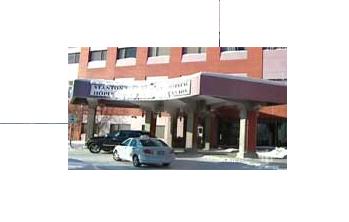Northern Canadian hospital cancels surgeries: sterilization equipment to blame
 Stanton Territorial Hospital in Yellowknife has had to cancel elective surgeries for the second time this year, due to continued problems with the facility’s sterilization equipment.
Stanton Territorial Hospital in Yellowknife has had to cancel elective surgeries for the second time this year, due to continued problems with the facility’s sterilization equipment.
Stanton Territorial Hospital in Yellowknife has had issues with the machines it uses to sterilize surgical equipment since January, when 274 elective surgeries had to be cancelled. CBC Hospital officials claim the three machines they use to sterilize surgical tools are working, but as of June they have not been showing consistent results.
Elective surgeries have been put on hold as a precaution, but officials say no one was put at risk by the hospital’s sterilization equipment.
Robin Greig, Stanton hospital’s head of operations, acknowledged there has been “a huge level of frustration” among nursing staff and physicians because the ongoing problems are not easy to solve.
“It’s just the nature of the business. When you use moisture and temperature changes and stuff like that, you get a high level of condensation,” Greig told CBC News.
Sterilizing machines operate by using super-heated steam. Hospital staff become concerned when minor water stains or “wet spots” appear on surgical instruments, as those spots could attract germs.
Surgeries cancelled earlier this year
The Stanton Territorial Health Authority cancelled 274 elective surgeries in January and February because of problems with the sterilization equipment.
Then-health minister Sandy Lee told MLAs in February that at least three infections were confirmed around that time, but she added that the hospital’s rate of post-operation infections is below the national average.
Hospital staff have maintained that there is no risk for infection, as any equipment that is not up to standard is not used.
Greig said maintenance experts stabilized the equipment issues in February, but the problems have since returned. At least $100,000 has been spent on repairs to date, he said.
Yellowknife Great Slave MLA Glen Abernethy said he has been fielding calls from a number of patients who have had their surgeries put on hold recently.
“I want to know how long, I want to know what the costs are going to be,” Abernethy said.
“I want to know what the plan is on moving forward with these individuals who are waiting and waiting and waiting and waiting.”
About 70 of the 274 patients whose surgeries were postponed earlier this year are still waiting. It is not clear how long patients who are affected by the latest delay will have to wait.



